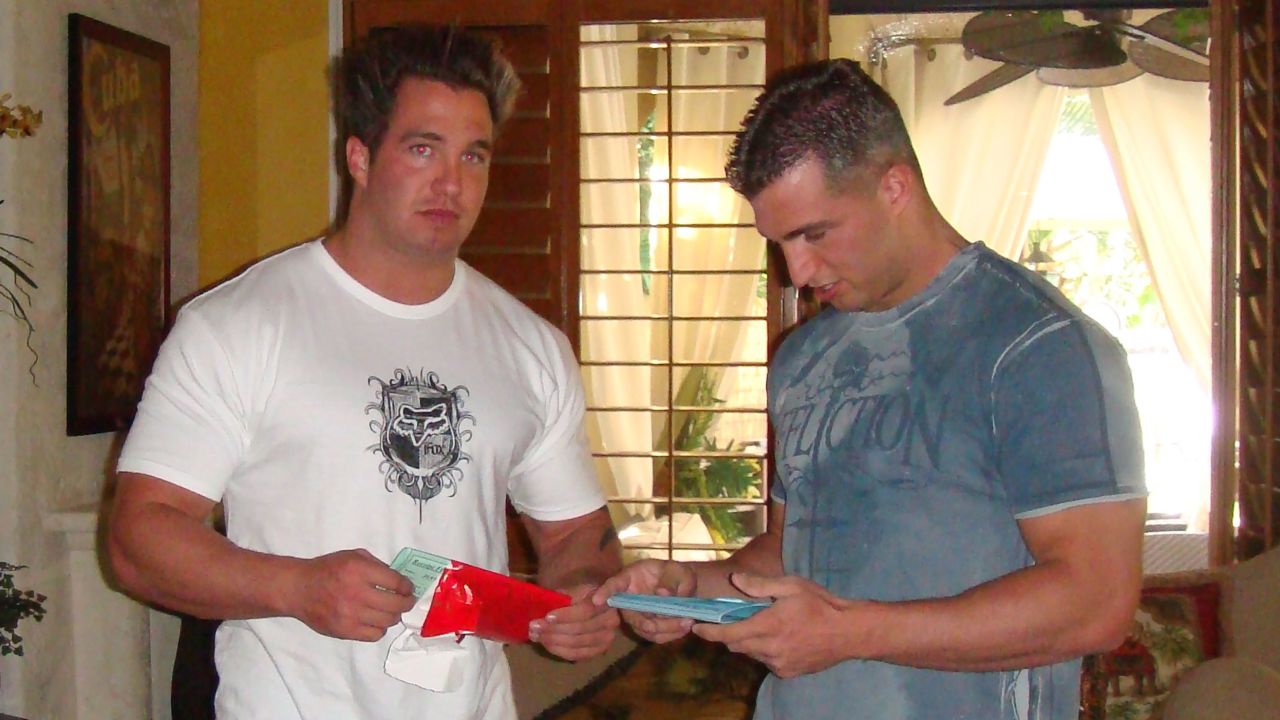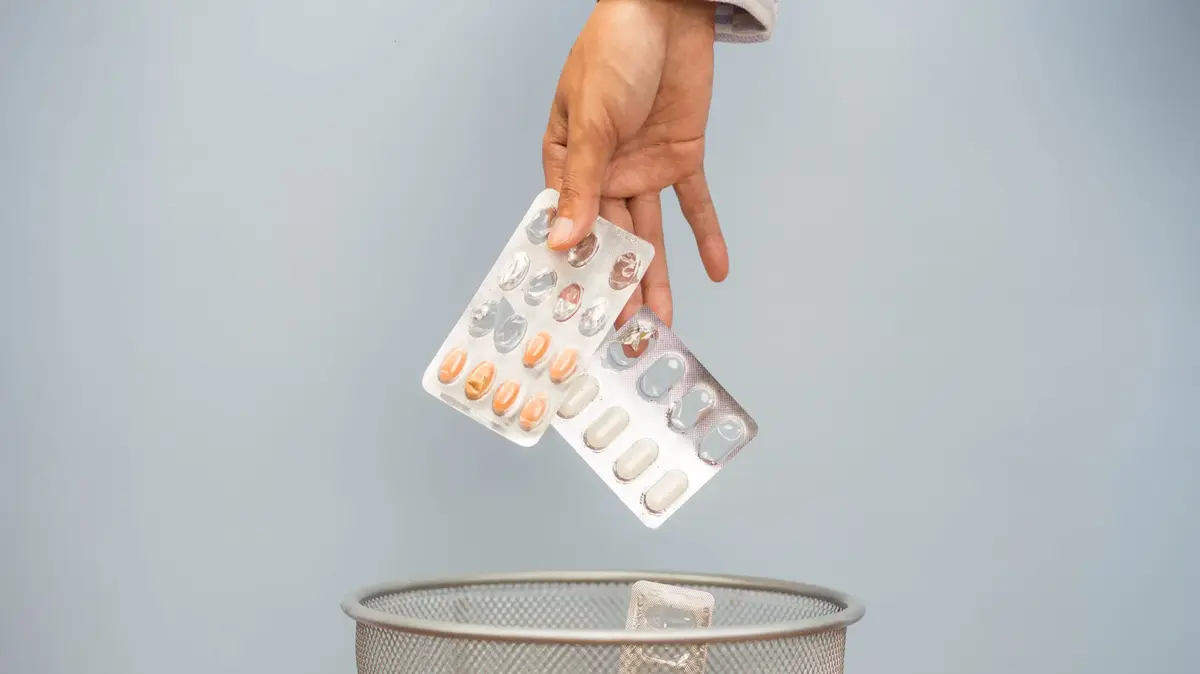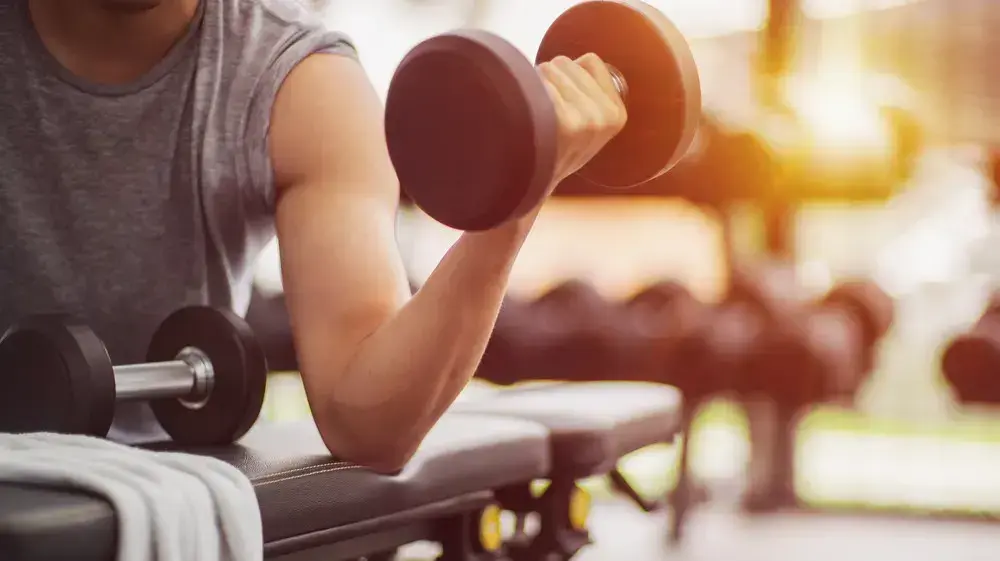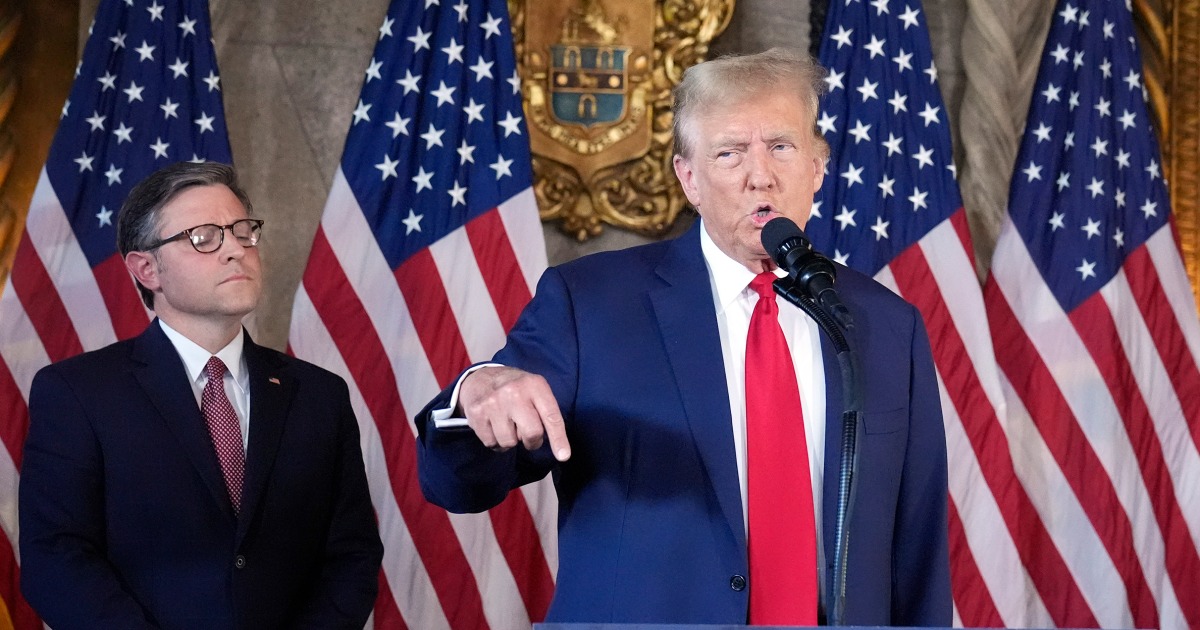Editor's Note:
CNN Films' "American Pain" premieres Sunday, February 5, at 9 pm Miami time on CNN.
(CNN) --
Crowds of people are outside the American Pain clinic in Boca Raton, Florida, waiting their turn.
Inside, a doctor greets them one by one and prescribes pain medication, a gun peeking out from under his white coat.
American Pain is a solid business that supplies both prescriptions and pain relievers.
At the gate, a burly doorman warns people not to inhale their pills in the parking lot.
That would attract the kind of attention that the clinic's owners, twin brothers Chris and Jeff George, try to avoid.
But it is already too late.
Local and federal investigators are nearby, watching his every move.
These are scenes from a new CNN Films documentary, "American Pain," detailing the rise and fall of the George brothers as opioid kingpins.
Emmy Award-winning director Darren Foster's film uses recordings of FBI wiretaps and undercover videos, along with exclusive interviews from the brothers in jail, to paint a portrait of a ruthless painkiller empire that turned the Georges millionaires and allowed access to addicts from all over the country.
Drug overdose deaths hit another record as opioid deaths doubled, CDC says
"The George brothers did not start the opioid crisis. But what is certain is that they added gasoline to the fire," said retired FBI agent Kurt McKenzie, who led an investigation dubbed Operation Oxy Alley or "Oxycodone Alley." , which began after oxycodone from the twin brothers' clinics turned up in drug overdose-related scenes.
Investigators tapped the clinic's phones, secretly recorded videos and sent undercover agents posing as patients to buy the drugs.
advertising
"They became the largest street distribution group operating in the entire United States," added McKenzie.
"Nobody put more pills on the street than them. Nobody... and they operated in broad daylight."
One brother described his operation as 'the Disneyland of pain clinics'
Between the two of them, Chris and Jeff George ran four "pain clinics" and other related businesses in South Florida.
His activity coincided with the height of the opioid epidemic between 2008 and 2010, when the prescription painkiller business was booming, according to federal authorities.
In addition, people across the country were beginning to realize the toxic effect that legal drugs were having on communities.
"Before this case, the public only knew that people were dying from drug overdoses, they had no idea how the 'system' worked," McKenzie said.
"The George brothers created the project."
Chris George with his
silver
monster truck .
The twins led an extravagant lifestyle, owning boats, flashy watches, and several houses.
Courtesy of the George brothers
They advertised the clinic in local newspapers and recruited doctors to prescribe the drugs, offering them incentives for large and frequent prescriptions.
To avoid suspicion, the brothers' clinics only accepted cash and credit cards, not insurance plans, according to court documents.
They hired women through Craigslist to deliver the pills prescribed by the doctors.
The George brothers made it easy to get medication at their clinics, where no appointments were necessary.
Patients flocked to Florida from Tennessee, Kentucky, Ohio, West Virginia and other Appalachian states ravaged by opioid abuse.
"I think we created a new form of tourism," says Jeff George in the documentary, in a phone interview from jail.
"We were basically like the Disneyland of pain clinics."
Painkillers Are Making America Less Productive, Study Says
Some drug dealers traveled to the clinics from Kentucky in chartered buses labeled "Tree of Life Baptist Church" to mask their criminal intent, the documentary shows.
"It's like a candy store," one man told FBI agent Jennifer Turner when asked why he frequented the George brothers' pill factories.
Meanwhile, the brothers were making millions and trying to outdo each other with extravagant lifestyles.
Expensive watches, flashy cars, boats and several houses were bought.
Jeff George drove a Lamborghini, while his sister Chris had a huge custom
monster truck
.
The Pain Clinic of South Florida was one of four that Chris and Jeff George owned together.
Obtained by CNN
The clinics operated like fraternities, said Derik Nolan, an old friend of the twins who is described in the documentary as their right-hand man.
While customers waited for their next fix, employees played with remote-controlled cars and shot each other with slingshots.
In the refrigerators of the clinics there was beer and
shots
of Patrón drink, Nolan says.
The cash registers at the clinics were too small to contain the deluge of bills coming in, so the clerks stuffed the money into huge garbage bags.
They boasted of making millions of dollars in profits
According to an FBI agent quoted in the film, one of the clinics referred people without MRIs to a trailer behind a
strip
club , where they could enjoy lap dancing while waiting for new scans from fake radiologists.
The George brothers believed the images helped make their prescribing process appear more authentic, according to federal officials.
FDA Warns Against Illegal Opioid Trade Online
Doctors at the clinics charged per person, providing an incentive to see as many patients as possible, according to federal officials.
The doctors "did not obtain prior medical histories or prescribe alternative treatments. They did not refer patients to specialists. Virtually everyone examined by the conspiring doctors received a prescription for controlled substances," the court documents say.
"There was no individualization of treatment as required by applicable federal law and Florida law."
These bottles of 30 mg oxycodone tablets, direct from the manufacturer, were seized by law enforcement at a George Brothers clinic.
The brothers' main clinic, American Pain, was among the nine largest buyers of oxycodone in the country, according to court documents.
Obtained by CNN
Chris George boasts in the film that the American Pain clinic alone generated $40 million in profit.
American Pain prescribed 18 million units of oxycodone, ranking it among the nation's nine largest purchasers of oxycodone, according to court documents.
"Of the top 20 prescribers in the country, five of them worked at just one of Chris's facilities," said McKenzie, a former FBI agent.
"These are real doctors. They have real licenses...and what appeared to be a real clinic."
Chris George says that he prided himself on the volume of his clinics.
"I wanted my doctors to be the top prescribers in the country," he tells the filmmakers in an interview from jail.
"For me, that was an achievement."
A grieving father helped take down a pill factory
John Friskey owns a computer service company in Jacksonville, Florida.
When a pill factory set up shop in the same strip mall, Friskey was a grieving father who had lost his son Andy to opioid addiction.
Andy loved music and played the guitar.
"He was in a car accident in Tennessee. He had a ruptured spleen and was in a lot of pain," Friskey told CNN.
"He took drugs in pill factories. I didn't know they were pill factories. I didn't even know she was taking drugs. He took an overdose."
The neighboring pain clinic was owned by a man named Zachary Rose, who rivaled the George brothers for supremacy among Florida's pill factories.
Rose's clinic drew crowds of out-of-state drug users to the area, and Friskey wanted her out of the mall.
When the clinic asked Friskey to help maintain their computer networks and security cameras, Friskey saw an opportunity.
He turned to the DEA and offered to help shut it down.
DEA agents bugged him and recorded their conversations as he worked on Rose's computers, while the doctors bragged about how much money they made each day.
Friskey said he would remove their hard drives, replace them with new ones, and turn the old ones over to federal agents.
"They never questioned me, they never tried to detain me," Friskey said.
"I was glad to finish him off."
Rose pleaded guilty to a drug conspiracy charge in 2012 and was sentenced to 15 years in prison.
An estimated 3,000 people died from overdoses linked to the brothers' clinics, according to the FBI
It all came crashing down in August 2011, when federal investigators raided the brothers' homes and discovered illegal weapons, drugs and other items.
They also raided the home of the twins' mother, Denice Haggerty, who worked at one of the pain clinics.
There they discovered safes in the attic with US$4 million.
The brothers were among 31 people charged, including their mother, under the federal RICO law, which targets organized crime.
Thirteen doctors were also charged, with all but two pleading guilty to lesser charges of money laundering or wire fraud.
Haggerty, the twins' mother, pleaded guilty that same year to one count of conspiracy to commit wire fraud and was sentenced to 30 months in prison.
Chris George pleaded guilty to conspiracy and was sentenced to 17 years in prison.
He served 11 years and was released in September 2021.
Jeff George: "We were basically like the Disneyland of pain clinics."
Courtesy of the George brothers
Jeff George also pleaded guilty to one count of conspiracy and was sentenced to 15 1/2 years.
He was also convicted of felony manslaughter in the fatal overdose of a patient, according to court records.
He was given an additional 20-year sentence on the murder charge and remains in prison.
According to McKenzie, an estimated 3,000 people died from overdoses related to the brothers' clinics.
She said the FBI arrived at that figure after reviewing a random sample of 300 patient files from the brothers' clinics and looking at how many of the patients had subsequently overdosed.
Since many of the clinics' clients sold their pills to others, that estimate does not include the secondary or even tertiary market for the drug, McKenzie added.
Chris George denied responsibility for his clients' fatal overdoses
The brothers, now 42, leave a legal legacy in Florida.
In 2011, the state passed a "pill factory law" that prohibited pain clinics from dispensing opioids and set requirements for medical examinations.
But Nolan, the George brothers' partner who also pleaded guilty to a racketeering charge and served 10 years in prison, feels law enforcement targeted the wrong people.
"They didn't want to go after big pharma. They didn't want to go after big distributors. They only wanted us, who are nobody. The money we make is a pittance compared to what big pharma has made over the years. years," he says in the documentary.
Inside the secret DEA lab monitoring the opioid crisis
In recent years, big pharmaceutical companies like Purdue Pharma, whose painkiller OxyContin has been widely blamed for sparking the opioid crisis, have agreed to pay billions of dollars in legal settlements.
Pharmacy chains such as CVS and Walgreens have also agreed to settle lawsuits brought by states and local governments that allege retailers mishandled prescriptions for pain relievers.
The George brothers in an undated photo.
"They act like I'm the bad guy because I had a business," Chris George said after his release from jail.
Credit: George brothers
Meanwhile, more than a decade after the FBI shut down their operation, Chris George believes he and his brother had nothing to do with the deadly overdoses.
"In the end, it is their responsibility. They are responsible for themselves, I am not," he says in the film after being released from jail.
"I don't think we created any more addicts. They were already here. They just had an easier way...to get their drugs. And a safer way. Now they don't even know what they're getting."
Chris George, out on parole, continues to blame his former patients for the deadly effects of his drugs.
"They told my doctors they were in pain. They had an MRI that showed they were in pain. My doctors gave them medication. What they did with it is out of my hands."
"They act like I'm the bad guy because I had a business," he added.
"In this country, anyone can open a business."
Chris George said he plans to open a real estate business with his friend Nolan.
And if the housing market crashes, as it did during the heyday of his opioid empire, Nolan told the makers of "American Pain" that he has another idea.
"We may have to go back to the medical field," he said.
Opioid crisisOpioid epidemicOpioidsOpioids












/cloudfront-eu-central-1.images.arcpublishing.com/prisa/KMEYMJKESBAZBE4MRBAM4TGHIQ.jpg)


